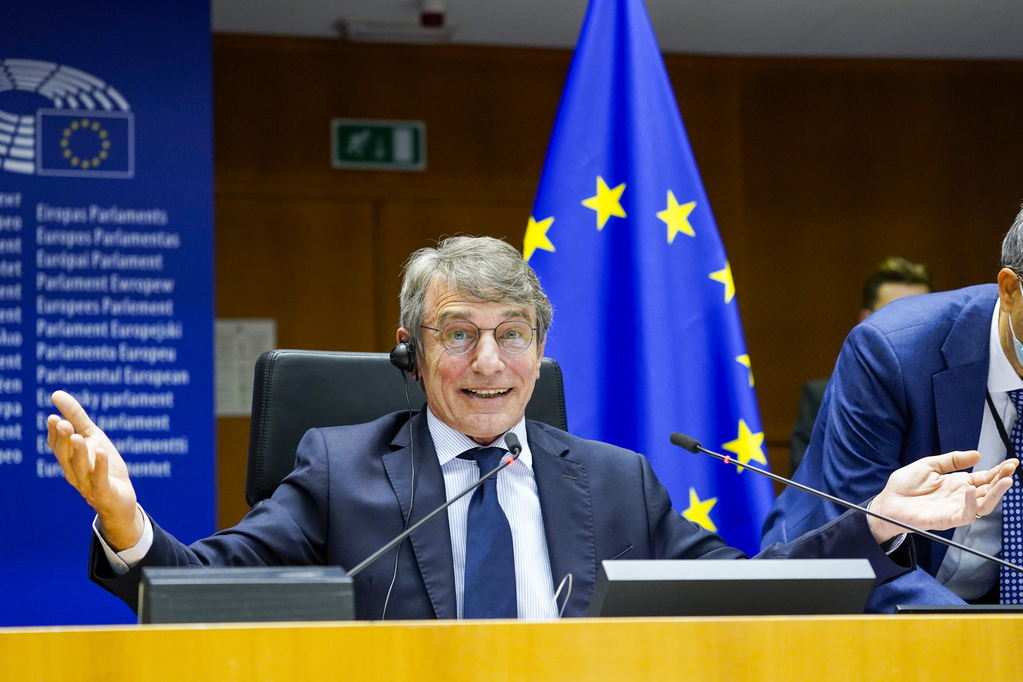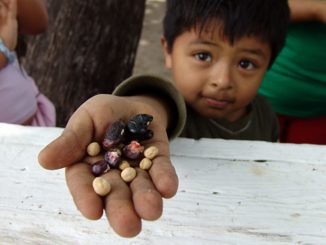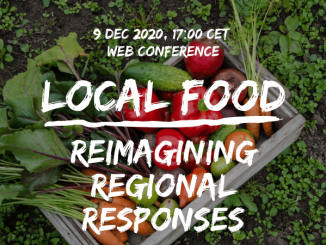
Biodiversity, organic farming, young farmers and other areas received a welcome financial boost from the EU institutions on Tuesday (10th November). The European Parliament’s negotiating team and the German Presidency of the Council reached agreement on the forthcoming Multiannual Financial Framework (MFF), the EU’s budget for 2021 – 2027.
According to the Council’s statement: ‘(The agreement) complements the comprehensive financial package of €1824.3 billion negotiated by EU leaders in July, which combines the next multiannual financial framework – €1 074.3 billion – and a €750 billion temporary recovery instrument, Next Generation EU in 2018 prices.’
The Next Generation EU recovery fund is a dedicated borrowing mechanism the EU has initiated for covid-19 recovery. The Union intends to borrow up to E750 Billion, which means EU countries will not have to contribute additional money from their national budgets.
The Parliament describes the outcome of the negotiations as a ‘compromise’ in which it ‘obtained €16 billion on top of the package agreed by heads of state or government at their summit in July. €15 billion will reinforce flagship programmes to protect citizens from the COVID-19 pandemic, provide opportunities to the next generation, and preserve European values. €1 billion will increase flexibility to address future needs and crises.’
Additional funds are also to be drawn from competition fines paid when companies do not comply with EU rules, and mean that support for EU4Health (the EU’s covid response) has tripled while Erasmus+ and other research is also better funded.
Biodiversity
The deal contains some good news with the European Parliament announcing that from 2024, 7.5% of the annual EU budget will be spent on biodiversity and from 2026, this biodiversity expenditure will rise to 10%. Improved climate and biodiversity tracking methodologies will be implemented in order to ensure that a minimum of 30% of the total EU budget and Next Generation EU expenditures will support climate objectives.
According to Rasmus Andresen, the Greens / EFA group MEP who was one of the Parliament’s negotiators,
‘The European Parliament fought successfully for a biodiversity spending target, which will be implemented after the European institutions have worked in close cooperation on a biodiversity methodology in the coming years. We have just a few years to solve the climate crisis and save nature. The agreement is a start towards a European climate budget.’
Ariel Brunner of Birdlife Europe highlighted the significance of a legally binding commitment to biodiversity expenditure:
According to the Parliament’s statement, its top priority in the negotiations was ‘to secure an increase for flagship programmes that were at risk of being underfinanced under the European Council’s July 2020 agreement, jeopardising the EU’s commitments and priorities, notably the Green Deal and the Digital Agenda’.
The agreement on November 10 was reached following what the Council describes as ‘intensive consultations with the Parliament and the Commission that have been underway since the end of August’. Now, the deal will be submitted along with the other elements of the next MFF and recovery package to Member States for endorsement.
Supports
A range of other supports were also announced Tuesday related to the covid-19 crises. Early release of funds – 2021 and 2022, not 2022-2024; at least 37% of the funding to support environment and climate-related actions; and a minimum of 55% of the aid to help young farmers and build resilient, sustainable, digital recovery were highlighted in the Parliament’s release on the matter.
Organic farming animal welfare and other areas are highlighted as suitable for support:
“MEPs managed to secure at least 37% of the recovery funding for organic farmers, for environment and climate-related actions and for animal welfare. At least 55% of the fund will support young farmers’ start-ups and on-farm investments that contribute to a resilient, sustainable and digital recovery.”
The Parliament also emphasised that “the share of recovery funding that EU countries will spend on environmentally beneficial practices should not be lower than the percentage of the EU rural development envelope they currently spend to this end.”
75% of costs that can contribute to a sustainable and digital economic recovery will be supported, while the ceiling for the business start-up aid from the Rural Development Fund for young farmers has been increased from E70.000 to E100.000.
All of this said, the details will be worth unpacking, to see just how ‘dark green’ the supportable measures will actually be. its also worth noting that the referenced July agreement with the Council itself represented a rollback of prior ambition, as we reported back then. It is also curious how absent this sort of EU Green Deal thinking was when both the Parliament and Council were adopting positions on the CAP.
Nevertheless, extra supports for biodiversity, for organic farming, young farmers, rural areas and more is welcome.






